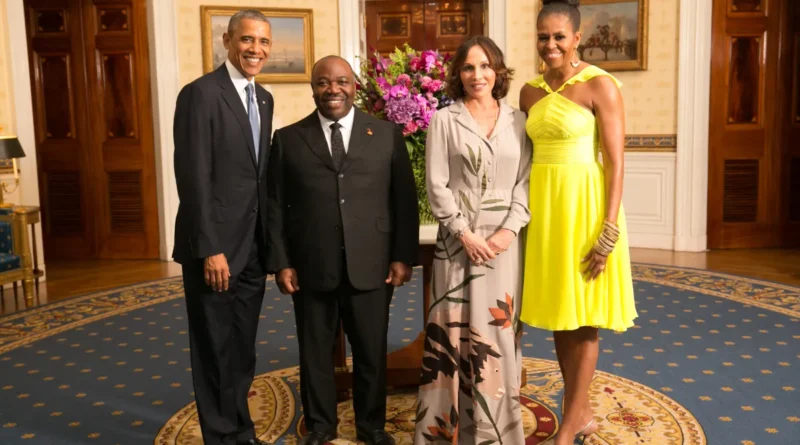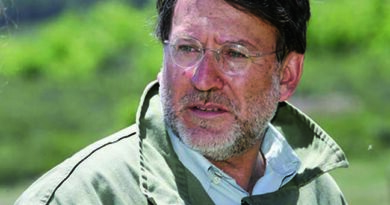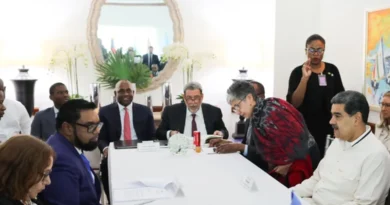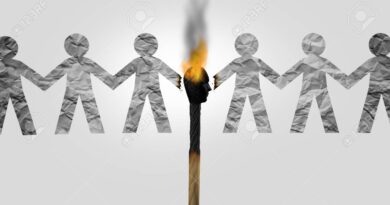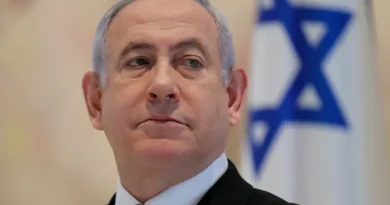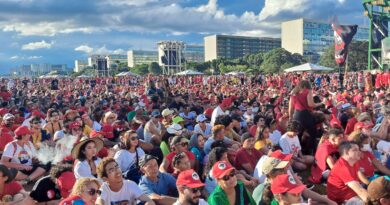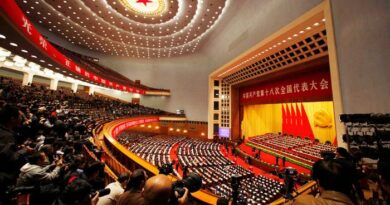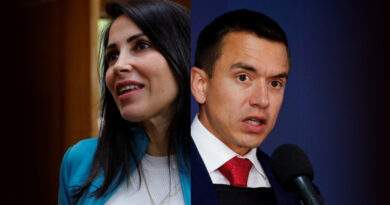Gabon: the fall of “Obama's man in Africa”
MAX BLUMENTHAL
Before his removal in a military coup, Gabon's corrupt president, Ali Bongo, was courted by Obama and feted from Washington to Davos. The US war in Libya, which destabilized the region, might not have succeeded without him.
When a military junta arrested President Ali Bongo Odinmba on August 30, Gabon became the ninth African nation to overthrow its government in a military coup.
As months before in Niger, Burkina-Faso or Mali, crowds of citizens flooded the Gabonese streets to celebrate the overthrow of their former leader, who had the backing of the West, even though his family boasted a lavish lifestyle while more than a third of the country's population languished in destitution.
“Irresponsible and unpredictable government has caused a steady deterioration in the
social cohesion, threatening to drive the country into chaos,” Gabonese junta leader Colonel Ulrich Mafoumbi declared before taking power.
The arrest of President Bongo was met with outraged condemnations from
Washington and Paris, who had supported him when he plundered the vast wealth
oil industry of his country.
In particular, his ouster dealt quite a blow to former President Barack Obama, who considered the Gabonese autocrat one of his closest allies on the continent since he had won his diplomatic support for a war against Libya that he later unleashed terror and instability throughout the region.
The bond between Obama and Bongo was so close that Foreign Policy even called the leader
Gabonese as “Obama's man in Africa.”
With Obama's help, Bongo tried to appear as a modernizing reformer. He repeatedly traveled to the Swiss city of Davos to attend the World Economic Forum, at which he was named “agenda contributor.” There, he pledged to accelerate the Fourth Industrial Revolution in Africa by implementing lucrative digital identification and payment systems among his country's impoverished population.
Bongo's biography on the World Economic Forum website describes him as an “Africa spokesperson on biodiversity” and a “composer of musical pieces” whose interests include “history, football, classical music, jazz and bossa.” not going". This self-proclaimed Renaissance man managed to get along with Obama, Klaus Schwab and Bill Gates. But, at home, he found few friends among the struggling Gabonese masses.
A “global citizen” finds his destiny at home
Ali Bongo came to power as the son of the last Gabonese autocrat, Omar Bongo Odinmba, who ruled the country from 1967 until his death. In 2004, a year after discussing a $9 million whitewashing deal with disgraced Republican lobbyist Jack Abramoff, Bongo Sr. managed to meet with President George W. Bush.
Five years later, he died. He was leaving behind a presidential palace valued at half a billion dollars, more than a dozen luxury homes in places like the exclusive neighborhoods of Paris or Beverly Hills, and a country invaded by inequality.
Bongo Jr. was a disco artist for a short period of time. Later, he studied at the French Sorbonne and began preparing to lead his nation. He was inaugurated president of Gabon in 2009. He continued his father's business, plundering public funds to pay for a Boeing 777 airliner and a fleet of luxury cars while signing major contracts with international public relations companies.
According to a lawsuit, Bongo's sister, Pascaline, spent more than $50 million on elite vacations and high-end homes. Meanwhile, her family was gaining influence in Paris by diverting funds stolen from the Bank of Central African States into the campaign coffers of former French presidents Nicolas Sarkozy and Jacques Chirac.
However, the long and well-documented history of corruption of the Bongo family did not seem to bother President Barack Obama when he embarked on a regime change operation in Libya, justifying it, with great irony, as an exercise in "promotion of the democracy".
With Washington's help, Gabon won a seat on the UN Security Council, where it was tasked with passing US resolutions calling for sanctions and a Libyan no-fly zone in February 2011.
Bongo's cooperative spirit earned him a visit with Obama in Washington four months later. As he stood outside the president's personal residence, he became the first African leader to call on Gaddafi to leave power.
“They could call any African leader with private cell phone numbers,” the US ambassador to Gabon, Eric Benjaminson, told Foreign Policy magazine, referring to Bongo's staff. "They knew Gaddafi and they knew his chief of staff very well, and we were trying to work through the Gabonese to get Gaddafi to resign peacefully." “In a way, Obama liked me,” he added.
The US-led regime change war in Libya quickly transformed a stable and prosperous nation into a despotic hellscape ruled by warlords affiliated with Al Qaeda and ISIS. With unlimited access to the Libyan military's former weapons depots, jihadist groups began to ravage the Sahel region.
These organizations received covert assistance from Qatar, the Gulf monarchy that partnered with France and the US to remove Gaddafi, allowing a jihadist coalition to establish a de facto caliphate in northeastern Mali in 2012.
“The violence that has plagued the once stable Mali since late 2011 should not have surprised Western governments, as it is a direct function of the Libyan NATO intervention,” the Council on Foreign Relations noted.
Despite the growing French and US military presence – or perhaps because of the presence itself – jihadist attacks multiplied throughout the region in 2014.
In August of that same year, Obama rewarded Bongo with an invitation to attend the US-Africa Leaders Summit in Washington. During the meeting's gala dinner, Obama highlighted Bongo's critical role in his African strategy and sat next to him as they were presented by pop legend Lionel Richie.
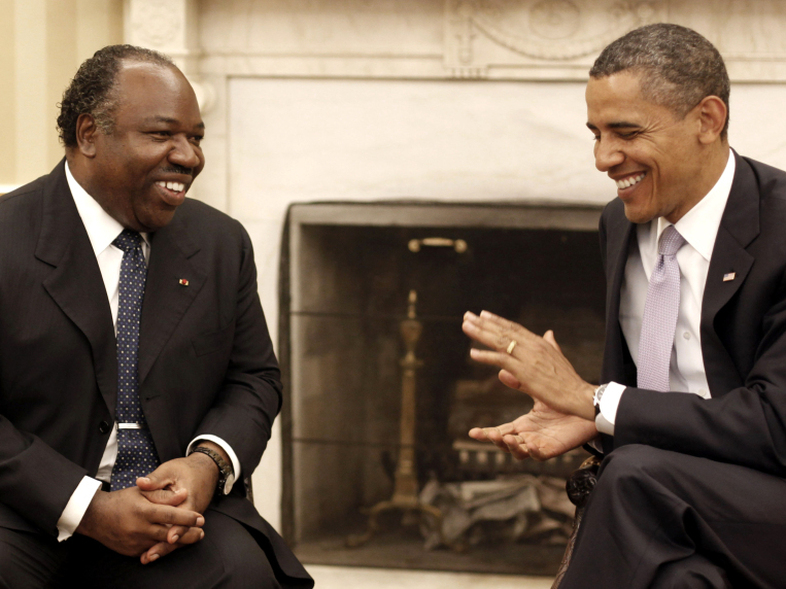
Barely a month after being re-elected in the less than transparent 2016 election, Bongo was endorsed by the US. The Atlantic Council, a shady NATO-sponsored body, awarded him a “Global Citizen Award” at the think tank's gala in New York City.
As doubts about electoral fraud persisted in Gabon, he was forced to cancel the trip.
The Atlantic Council respects Gabonese President Bongo's decision to forgo receiving his Global Citizen Award this year because of his overriding priorities in his country, the think tank announced in an absurdly canned statement posted on its website.
Meanwhile, in Bamako, the capital of Mali, a group of citizens calling themselves “Patriots of Mali” had begun gathering millions of signatures demanding the expulsion of all French diplomatic and military personnel from their country.
They called for Russian troops to replace French ones, urging them to drive out the Islamist bandits that had plagued their society since the Obama-led war in Libya.
The simmering anger of average Malians sparked a popular military coup in 2021 and set the stage for another in neighboring Burkina Faso, where citizens were seen celebrating the junta with homemade Russian flags in hand, the following year.
As the August 30 coup in Gabon ended the reign of one of Washington's favorite kleptocrats, Bongo recorded a video message from an unknown location, desperately appealing to "all the friends we have around the world." the world to tell them to make noise.”
However, at the time it was not clear if Obama was listening or if there was much he could do to rescue his "man in Africa."
Max blumenthal He is editor-in-chief and founder of the American digital publication The Grayzone. He has written several books, including The fifth and one day war: ruin and resistance in Gaza y The management of savagery: how America's national security state fueled the rise of Al Qaeda, ISIS and Donald Trump. He is the author, along with Dan Cohen, of the documentary killing strip
This article is published in collaboration with TheGrayzone.

